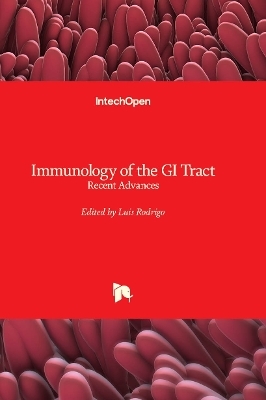
Immunology of the GI Tract
Recent Advances
Seiten
2022
IntechOpen (Verlag)
978-1-80356-086-1 (ISBN)
IntechOpen (Verlag)
978-1-80356-086-1 (ISBN)
The intestine is the largest digestive organ in the human body and one of the largest organs in contact with the outside world. In addition to digesting food to facilitate the absorption of nutrients, it has a variety of other functions, including the transmission of information and regulation of the metabolism. Due to its unique structure, the intestine is constantly exposed to various antigens and microbes. To protect the body from pathogens, while also maintaining a stable environment, the human intestinal tract has evolved unique regional immune characteristics maintained by the mature intestinal mucosal immune system. This intricate system involves intestinal epithelial cells, and intestinal lymphoid tissue composed of Peyer’s patches, isolated lymphoid follicles, mesenteric lymph nodes, and so on. The congenital and adaptive immune mechanisms created by the unique structure, function, and microenvironment of the intestine differ from those of the central and peripheral immune organs forming the regional immunity of the intestine. Intestinal flora also plays an important role in maintaining intestinal homeostasis, altering the structure and function of the immune system, reshaping the immune microenvironment, and promoting interference with the development of specific diseases. In fact, the immune function of the intestinal region directly affects the development of many intestine-specific diseases. However, the integrity of this function depends on the expression of congenital genes and the regulation of the neuroendocrine system. The microenvironment created by intestinal flora and its products also affects the immunity of the intestinal region. In early life, appropriate intestinal colonization by specific microflora stimulates the maturation of the intestinal mucosa-associated lymphoid tissue. If the appropriate intestinal flora fails to form during this life stage, the function of the intestinal immune system becomes impaired, leading to increased incidence and/or morbidity of certain intestinal diseases, including ulcerative colitis, Crohn’s disease, and others.
| Erscheinungsdatum | 18.05.2023 |
|---|---|
| Verlagsort | London |
| Sprache | englisch |
| Maße | 180 x 260 mm |
| Themenwelt | Medizinische Fachgebiete ► Innere Medizin ► Gastroenterologie |
| ISBN-10 | 1-80356-086-X / 180356086X |
| ISBN-13 | 978-1-80356-086-1 / 9781803560861 |
| Zustand | Neuware |
| Haben Sie eine Frage zum Produkt? |
Mehr entdecken
aus dem Bereich
aus dem Bereich
Buch | Softcover (2024)
Urban & Fischer in Elsevier (Verlag)
CHF 76,00


